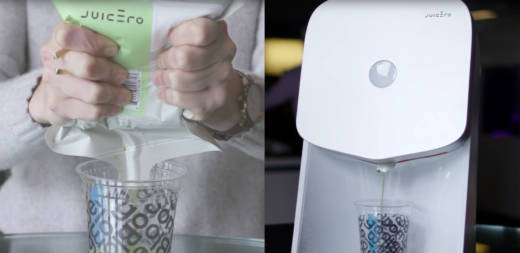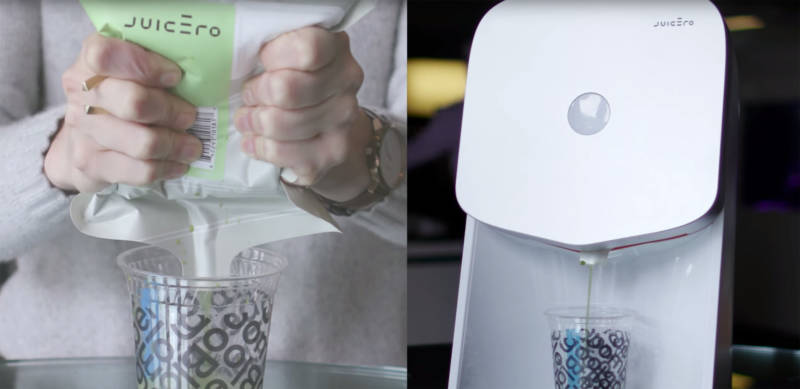Things got even worse for the tech company when Bloomberg published a video showing one of their reporters squeezing the bags of cut-up fruits and vegetables with her bare hands and getting essentially the same glass of juice the $400 machine makes.
For many, it was a textbook example of a real problem: out-of-touch Silicon Valley investors throwing money at a product that has no use for regular people. Others argue that Silicon Valley companies have to be allowed to fail spectacularly if others are going to change the world.
We put the question to Bloomberg's Ellen Huet, whose hands have been seen around the world squeezing Juicero juice:
Does Juicero matter?
"I don't think I can argue that Juicero the machine matters," Huet says, "but it shows that there are these cracks in our venture capital system and it's worth examining how did that happen."
Huet says part of it is who venture capitalists usually are: wealthy men who might be more interested in shelling out $400 for a glass of juice than a regular person. This lack of diversity can lead investors to fund companies that might appeal only to a small segment of the population and leave other companies without the money they need to get off the ground.
"If we think the wrong companies are getting funded," Huet says, "it's probably worth discussing what are different structures and incentives we could try to create in the venture capital industry where we would be funding companies that are arguably more worthy."
Even though Huet admits the Juicero does make a delicious glass of juice, she says the fact that this company succeeded in raising $120 million from investors without them seeing so much as a prototype is important.
"It's about a lot more than just juice," she says. "It's about how we get new businesses and how people manage to make the next startups we're going to see."


